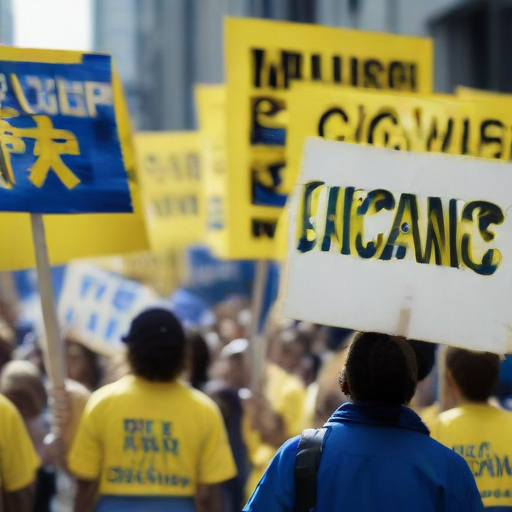Samsung employees have taken to the streets in South Korea, participating in a significant rally as their strike for improved working conditions and higher wages enters its third week. Approximately 1,200 members of the National Samsung Electronics Union (NSEU) marched at the Giheung campus in Yongin, marking a growing momentum in their efforts.
The rally was organized following initial wage negotiation discussions between the union and Samsung held last Friday. After a previous strike attempt fell short of achieving meaningful workplace improvements, the NSEU announced an indefinite strike on July 8. While the union represents over 30,000 workers, the exact number participating in the ongoing strike remains unclear. Nonetheless, this current strike is noteworthy as it stands as the largest in the history of the technology giant.
Samsung is experiencing a remarkable financial surge, with second-quarter revenues projected to increase by more than 1,450% year-over-year, attributed largely to advancements in artificial intelligence. Additionally, the company reported a tenfold increase in profits for the early part of 2024. However, workers participating in the strike argue that they are not benefitting from these record gains, citing stagnant wages despite the company’s booming profits.
Many of the striking workers are employed at Samsung’s foundry, where some of the world’s most advanced computer chips are manufactured. Observers note that Samsung has a reputation for being adversarial toward labor unions and typically lacks experience in engaging with its employees on such issues.
Experts suggest that if the striking workers achieve their goals, it could shift the landscape for labor rights in South Korea, potentially motivating other workers across various sectors to advocate for their rights.
This ongoing labor movement highlights a critical juncture for both workers and corporations in the tech industry. With the spotlight now on employees’ demands for fair compensation and conditions, there is an opportunity for meaningful change that may resonate far beyond Samsung, ultimately fostering a more equitable workplace environment in South Korea and beyond.
Overall, the unfolding situation can serve as a catalyst for improving labor relations and enhancing employee rights, paving the way for a brighter future for workers within the tech industry.
